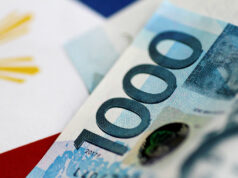Rate hike impact on lending ‘limited’
By Melissa Luz T. Lopez
Senior Reporter
“GRADUAL” interest rate hikes introduced by the central bank this year are unlikely to weigh on banks’ lending activities, with strong demand expected to be sustained despite higher borrowing costs.
The Bangko Sentral ng Pilipinas (BSP) said that market interest rates have “gradually risen” following the 175-basis point (bp) cumulative increase in policy rates in 2018, but not at a pace that would make a dent in the growth of bank loans.
“We expect loan growth to remain buoyant even amid higher interest rates, given the generally favorable outlook on the domestic economy,” the BSP said in e-mailed responses to questions from BusinessWorld.
The Monetary Board unleashed five consecutive rate hikes from May to November in an attempt to rein in inflation expectations, at a time when prices of widely used goods have risen to nine-year highs. That was the most aggressive tightening move by the BSP in over a decade, so far, in the face of rising food and oil prices.
Average bank lending rates climbed by 98.7 bps in the 10 months to October, the BSP has said, reflecting “transmission” of higher policy rates and keeping in step with the uptick in global yields.
Despite the rising cost of borrowing, demand for cash is expected to remain strong — particularly for production sectors — and should continue to “support broad-based economic growth in the country.”
Loan growth has so far sustained double-digit pace over the past few months, with an 18.1% increase recorded in October, according to latest available BSP data.
Even the retail segment is expected to remain upbeat, with individual Filipino consumers expected to keep on borrowing despite higher rates slapped by banks.
“[R]ising interest rates appear to have had a limited impact thus far on consumer lending, with overall growth in loans for household consumption (which also includes credit card loans, auto loans and salary loans) exhibiting a robust pace even amid the BSP’s monetary policy tightening measures,” the central bank added.
“Nevertheless, we continue to monitor the market for any signs of stress, particularly as monetary policy typically affects interest rates and bank loans with a variable lag.”
S&P Global Ratings projects credit growth to ease to 14-15% in 2019 due to rising borrowing costs, versus a 19% increase in December 2017 and a projected 15% pickup this year. Analysts added that rising interest rates could also affect the ability of borrowers to settle liabilities.
On the other hand, Fitch Ratings, continued to flag overheating risks in the Philippines after affirming its “BBB” rating last week. Fitch said “excessive” credit growth remains a key concern for the country despite sustained above-6% annual economic expansion.



